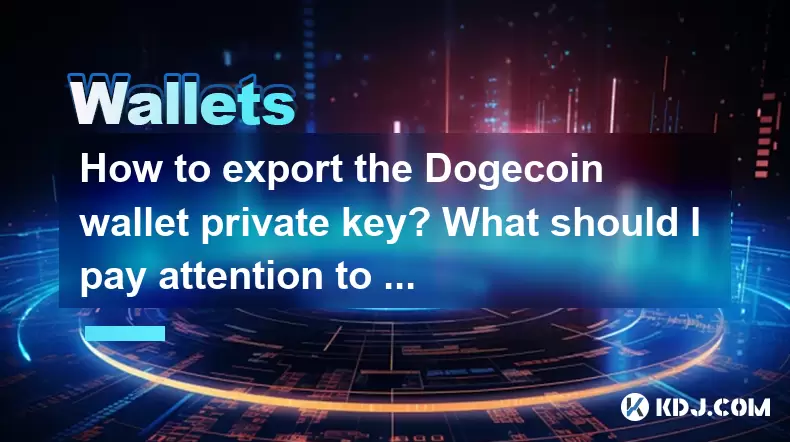-
 Bitcoin
Bitcoin $114500
-0.31% -
 Ethereum
Ethereum $3648
1.11% -
 XRP
XRP $3.033
-0.27% -
 Tether USDt
Tether USDt $0.9999
-0.01% -
 BNB
BNB $758.5
-0.32% -
 Solana
Solana $167.5
1.48% -
 USDC
USDC $0.9998
-0.02% -
 TRON
TRON $0.3331
0.74% -
 Dogecoin
Dogecoin $0.2039
0.25% -
 Cardano
Cardano $0.7419
-0.46% -
 Hyperliquid
Hyperliquid $39.21
2.66% -
 Stellar
Stellar $0.4049
-1.95% -
 Sui
Sui $3.483
-0.56% -
 Bitcoin Cash
Bitcoin Cash $570.8
2.89% -
 Chainlink
Chainlink $16.67
-0.57% -
 Hedera
Hedera $0.2470
-1.57% -
 Ethena USDe
Ethena USDe $1.001
0.00% -
 Avalanche
Avalanche $22.36
1.52% -
 Litecoin
Litecoin $123.4
4.35% -
 UNUS SED LEO
UNUS SED LEO $8.989
0.09% -
 Toncoin
Toncoin $3.324
-2.40% -
 Shiba Inu
Shiba Inu $0.00001219
-1.30% -
 Uniswap
Uniswap $9.811
2.54% -
 Polkadot
Polkadot $3.662
-0.07% -
 Monero
Monero $295.5
-3.85% -
 Dai
Dai $1.000
0.01% -
 Bitget Token
Bitget Token $4.345
0.24% -
 Cronos
Cronos $0.1380
0.95% -
 Pepe
Pepe $0.00001044
-1.14% -
 Ethena
Ethena $0.5981
-4.24%
How to export the Dogecoin wallet private key? What should I pay attention to when backing up my wallet?
Exporting your Dogecoin wallet's private key is crucial for accessing funds across platforms, but handle it with care to avoid theft.
May 10, 2025 at 03:21 pm

Introduction to Dogecoin Wallet Private Key Export
Exporting the private key from a Dogecoin wallet is a crucial operation that allows users to access their funds on different platforms or secure their assets in case of wallet software issues. However, this process comes with significant risks, as the private key is essentially the master key to your Dogecoin funds. In this article, we will guide you through the steps to export your Dogecoin wallet private key and discuss the important considerations when backing up your wallet.
Understanding the Private Key
Before diving into the export process, it's essential to understand what a private key is. The private key is a unique string of characters that proves ownership of a Dogecoin address. It is used to sign transactions, allowing you to spend the funds associated with that address. Losing your private key means losing access to your Dogecoin, making it vital to handle it with care.
Exporting the Private Key from Dogecoin Core
Dogecoin Core is the official Dogecoin wallet software. Here are the steps to export your private key from Dogecoin Core:
- Open Dogecoin Core: Launch the Dogecoin Core application on your computer.
- Unlock the Wallet: If your wallet is encrypted, enter your password to unlock it.
- Access the Console: Go to the "Help" menu and select "Debug window," then click on the "Console" tab.
- Use the
dumpprivkeyCommand: In the console, typedumpprivkey "your_dogecoin_address"replacing"your_dogecoin_address"with the actual address you want to export the private key for. Press Enter. - Copy the Private Key: The console will display your private key. Carefully copy it and store it securely.
Exporting the Private Key from MultiDoge
MultiDoge is another popular Dogecoin wallet. Here's how to export your private key from MultiDoge:
- Open MultiDoge: Launch the MultiDoge application on your computer.
- Select the Address: Go to the "Addresses" tab and select the address from which you want to export the private key.
- Export Private Key: Click on the "More" button, then select "Backup Paper Wallet." This will open a new window.
- Copy the Private Key: In the new window, you will see the private key. Copy it and store it securely.
Exporting the Private Key from Mobile Wallets
Many users also use mobile wallets like Trust Wallet or Coinomi. Here's how to export your private key from Trust Wallet:
- Open Trust Wallet: Launch the Trust Wallet app on your mobile device.
- Go to Settings: Tap on the settings icon (usually represented by three dots or a gear icon).
- Select Wallet: Choose the Dogecoin wallet you want to export the private key from.
- Export Private Key: Tap on "Show Recovery Phrase" or "Export Private Key." You may need to enter your password or use biometric authentication.
- Copy the Private Key: The private key will be displayed. Copy it and store it securely.
Backing Up Your Dogecoin Wallet
Backing up your Dogecoin wallet is as important as exporting the private key. Here are key considerations and steps to take when backing up your wallet:
- Use Multiple Storage Methods: Store your private key and wallet backup in multiple locations, such as a USB drive, a paper wallet, and a secure online storage service.
- Encrypt Your Backup: If you store your backup digitally, encrypt the files to add an extra layer of security.
- Keep Physical Copies Secure: If you opt for a paper wallet, store it in a safe or a secure location where unauthorized individuals cannot access it.
- Regularly Verify Your Backup: Periodically check your backup to ensure it is still accessible and valid. This can help you avoid potential issues when you need to restore your wallet.
Security Considerations When Handling Private Keys
Handling private keys requires utmost care to prevent unauthorized access to your funds. Here are some security measures to consider:
- Never Share Your Private Key: Do not share your private key with anyone, as doing so could lead to the theft of your Dogecoin.
- Use Secure Devices: Export and handle your private key on a device that is free from malware and other security threats.
- Be Wary of Phishing: Be cautious of phishing attempts that may try to trick you into revealing your private key.
- Use Hardware Wallets: Consider using hardware wallets for added security, as they store private keys offline and are less vulnerable to hacking.
FAQ
Q: Can I import my private key into a new wallet to access my Dogecoin?
Yes, you can import your private key into a new wallet to access your Dogecoin. Most Dogecoin wallets support importing private keys, allowing you to transfer your funds to a new wallet if needed.
Q: Is it safe to store my private key in a cloud storage service?
Storing your private key in a cloud storage service is generally not recommended due to security risks. If you must use cloud storage, ensure it is encrypted and protected with strong passwords and two-factor authentication.
Q: What should I do if I lose my private key?
If you lose your private key and do not have a backup, you will lose access to your Dogecoin permanently. It is crucial to keep multiple backups of your private key in secure locations to prevent this scenario.
Q: Can I recover my private key from a seed phrase?
Some wallets allow you to recover your private key from a seed phrase. If your wallet supports this feature, you can use the seed phrase to regenerate your private key and access your funds. Always check your wallet's documentation for specific instructions.
Disclaimer:info@kdj.com
The information provided is not trading advice. kdj.com does not assume any responsibility for any investments made based on the information provided in this article. Cryptocurrencies are highly volatile and it is highly recommended that you invest with caution after thorough research!
If you believe that the content used on this website infringes your copyright, please contact us immediately (info@kdj.com) and we will delete it promptly.
- Metamask, Altcoins, and the Move: Is Cold Wallet the Future?
- 2025-08-06 04:30:12
- BlockDAG, BNB, and SEI: What's Hot and What's Not in the Crypto World
- 2025-08-06 04:50:13
- Coinbase (COIN) Stock Trading Lower: Navigating the Crypto Equity Reset
- 2025-08-06 04:35:13
- Meme Coins Skyrocket: Is Dogecoin About to Be Dethroned?
- 2025-08-06 03:50:13
- Tether's On-Chain Surge: USDT Dominates and Drives Blockchain Fees
- 2025-08-06 02:50:13
- Bitcoin, Treasury, Country: Bolivia Follows El Salvador's Lead, While TON Strategy Co. Makes Waves
- 2025-08-06 03:50:13
Related knowledge

How to add TRC20 token to Trust Wallet?
Aug 04,2025 at 11:35am
Understanding TRC20 and Trust Wallet CompatibilityTrust Wallet is a widely used cryptocurrency wallet that supports multiple blockchain networks, incl...

What is a watch-only wallet in Trust Wallet?
Aug 02,2025 at 03:36am
Understanding the Concept of a Watch-Only WalletA watch-only wallet in Trust Wallet allows users to monitor a cryptocurrency address without having ac...

Why can't I connect my Trust Wallet to a DApp?
Aug 04,2025 at 12:00pm
Understanding DApp Connectivity and Trust WalletConnecting your Trust Wallet to a decentralized application (DApp) is a common process in the cryptocu...

How to fix a stuck pending transaction in Trust Wallet?
Aug 03,2025 at 06:14am
Understanding Why Transactions Get Stuck in Trust WalletWhen using Trust Wallet, users may occasionally encounter a pending transaction that appears t...

What is a multi-coin wallet in Trust Wallet?
Aug 03,2025 at 04:43am
Understanding Multi-Coin Wallets in Trust WalletA multi-coin wallet in Trust Wallet refers to a digital wallet that supports multiple cryptocurrencies...

How to switch between networks in Trust Wallet?
Aug 02,2025 at 12:36pm
Understanding Network Switching in Trust WalletSwitching between networks in Trust Wallet allows users to manage assets across different blockchains s...

How to add TRC20 token to Trust Wallet?
Aug 04,2025 at 11:35am
Understanding TRC20 and Trust Wallet CompatibilityTrust Wallet is a widely used cryptocurrency wallet that supports multiple blockchain networks, incl...

What is a watch-only wallet in Trust Wallet?
Aug 02,2025 at 03:36am
Understanding the Concept of a Watch-Only WalletA watch-only wallet in Trust Wallet allows users to monitor a cryptocurrency address without having ac...

Why can't I connect my Trust Wallet to a DApp?
Aug 04,2025 at 12:00pm
Understanding DApp Connectivity and Trust WalletConnecting your Trust Wallet to a decentralized application (DApp) is a common process in the cryptocu...

How to fix a stuck pending transaction in Trust Wallet?
Aug 03,2025 at 06:14am
Understanding Why Transactions Get Stuck in Trust WalletWhen using Trust Wallet, users may occasionally encounter a pending transaction that appears t...

What is a multi-coin wallet in Trust Wallet?
Aug 03,2025 at 04:43am
Understanding Multi-Coin Wallets in Trust WalletA multi-coin wallet in Trust Wallet refers to a digital wallet that supports multiple cryptocurrencies...

How to switch between networks in Trust Wallet?
Aug 02,2025 at 12:36pm
Understanding Network Switching in Trust WalletSwitching between networks in Trust Wallet allows users to manage assets across different blockchains s...
See all articles

























































































